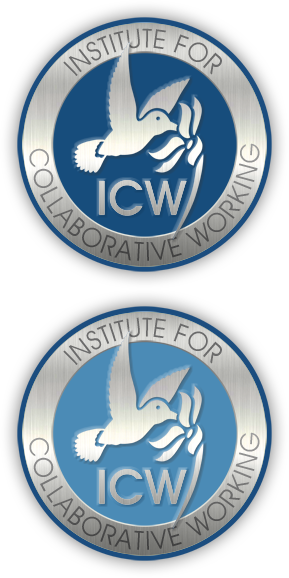Collaborative Working and its BenefitsDefining CollaborationLet's start with a formal definition - Collaborative Working is defined as:"Business relationships formed by committed organisations to maximise joint performance for achievement of mutual objectives and creation of additional value".
|
|
Benefits of Working CollaborativelyPeople collaborate all the time, because often the best way to achieve a common purpose is to work together to share know-how, ideas and combine effort. Participants need to understand what they expect to achieve and how the benefits will be shared, along with experiencing and reciprocating appropriate behaviours, within an environment of trust. Organisations that benefit from collaboration have generally recognised that it is not something that ‘happens naturally’, without the need for any attention to the factors that will underpin its success. A structured approach is the answer because it helps all the participants; be they organisations, teams or individuals, to understand the important elements of a collaborative venture. Collaboration can mean different things to different people. The ICW defines it as 'Business relationships formed by committed organisations to maximise joint performance for achievement of mutual objectives and creation of additional value.' In business this should be supported by sharing ideas, information, needs, expertise, experience, resources and risks, to innovate and create/add value, or manage risk better. It goes much further than co-operation, which tends to simply be when parties address a portion of a problem with no integration. Whereas collaboration is a far more integrated approach and why this guide is helpful to explain how you encourage this, whilst at the same time supporting participants in collaborative endeavours with suitable protections. Collaborative relationships provide the opportunity for people and organisations to enhance their success by working with others, that have a complimentary set of skills, resources, capabilities, or objectives. Working with others in a collaborative relationship can be a way of starting, growing or diversifying a business, to improve performance and increase income, through existing and new markets, or with new or existing customers, suppliers, or partners. Where do you want to collaborate? With Customers? With Suppliers? With peer to peer partners? Or with internal departments? Collaboration is becoming much more common and people and organisations that do it well are seeing a whole range of benefits. Warwick University research has clearly identified a range of tangible benefits* achieved through collaborative working, including:
* These have been identified in a 2015 Warwick University Report on Benefits Realisation report and ICW member cases studies (all available on the ICW website). To maximise success when collaborating adopt a structured approach. This will provide the platform for your organisation to collaborate, ensuring a consistent approach to developing relationships, using an agreed way that is easily understood and repeatable, regardless of the type and size of organisations. Growing interdependency as a result of more complex, high-risk business, together with increasing global trade, is focusing industry and government on the need to invest in developing more integrated business relationships. Warwick's research found that there is now a greater focus on building confidence in outcomes, as opposed to the historical approach focused on cost reduction. The challenge for organisations is in building commitment and sustainable relationships which ensure they do what they promise. Organisations managing complex and extended supply chains rate managing risk as a key reason for collaboration. |


 At its abstract level, collaboration embraces:
At its abstract level, collaboration embraces: